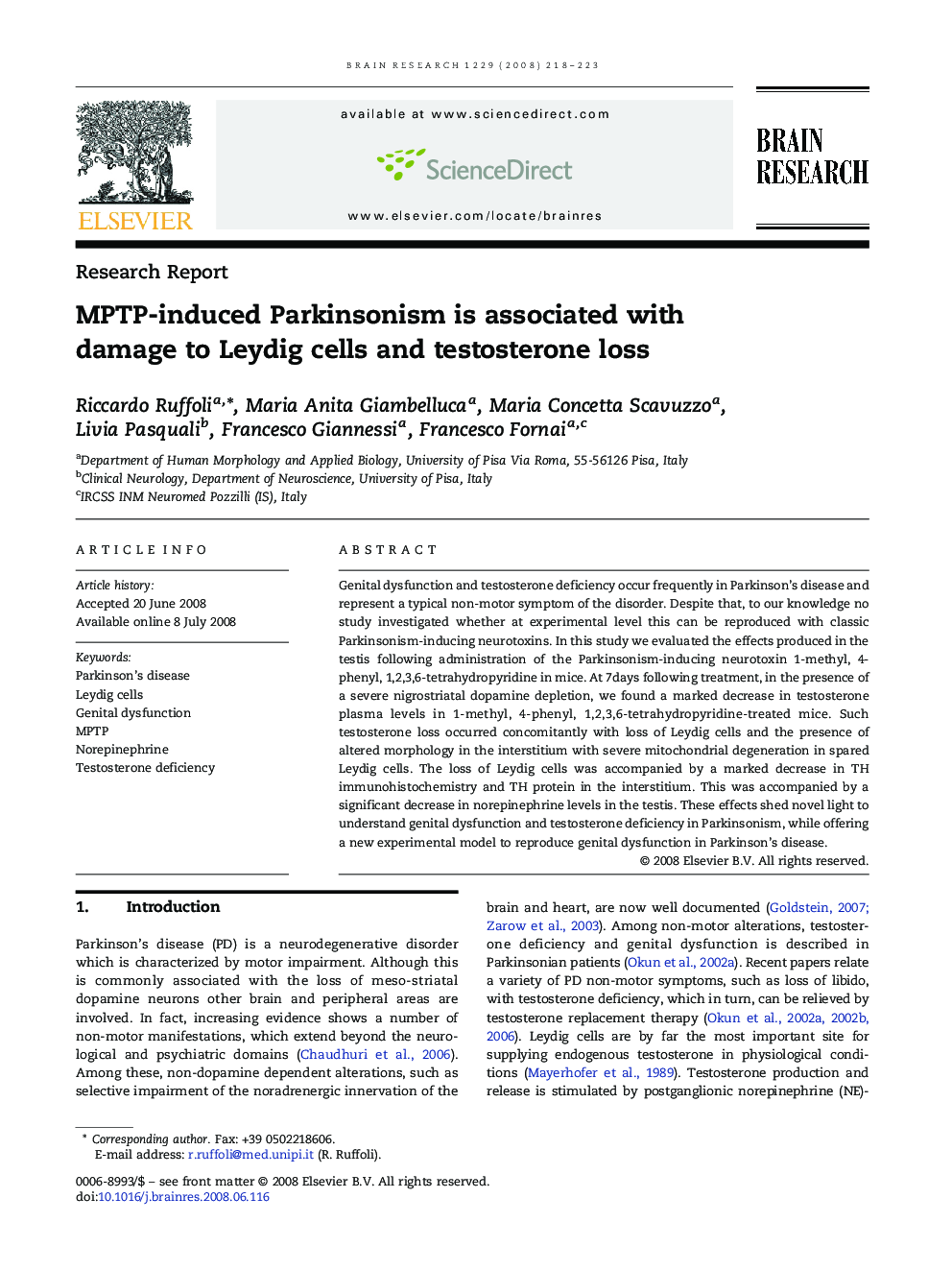| Article ID | Journal | Published Year | Pages | File Type |
|---|---|---|---|---|
| 4329377 | Brain Research | 2008 | 6 Pages |
Genital dysfunction and testosterone deficiency occur frequently in Parkinson's disease and represent a typical non-motor symptom of the disorder. Despite that, to our knowledge no study investigated whether at experimental level this can be reproduced with classic Parkinsonism-inducing neurotoxins. In this study we evaluated the effects produced in the testis following administration of the Parkinsonism-inducing neurotoxin 1-methyl, 4-phenyl, 1,2,3,6-tetrahydropyridine in mice. At 7days following treatment, in the presence of a severe nigrostriatal dopamine depletion, we found a marked decrease in testosterone plasma levels in 1-methyl, 4-phenyl, 1,2,3,6-tetrahydropyridine-treated mice. Such testosterone loss occurred concomitantly with loss of Leydig cells and the presence of altered morphology in the interstitium with severe mitochondrial degeneration in spared Leydig cells. The loss of Leydig cells was accompanied by a marked decrease in TH immunohistochemistry and TH protein in the interstitium. This was accompanied by a significant decrease in norepinephrine levels in the testis. These effects shed novel light to understand genital dysfunction and testosterone deficiency in Parkinsonism, while offering a new experimental model to reproduce genital dysfunction in Parkinson's disease.
